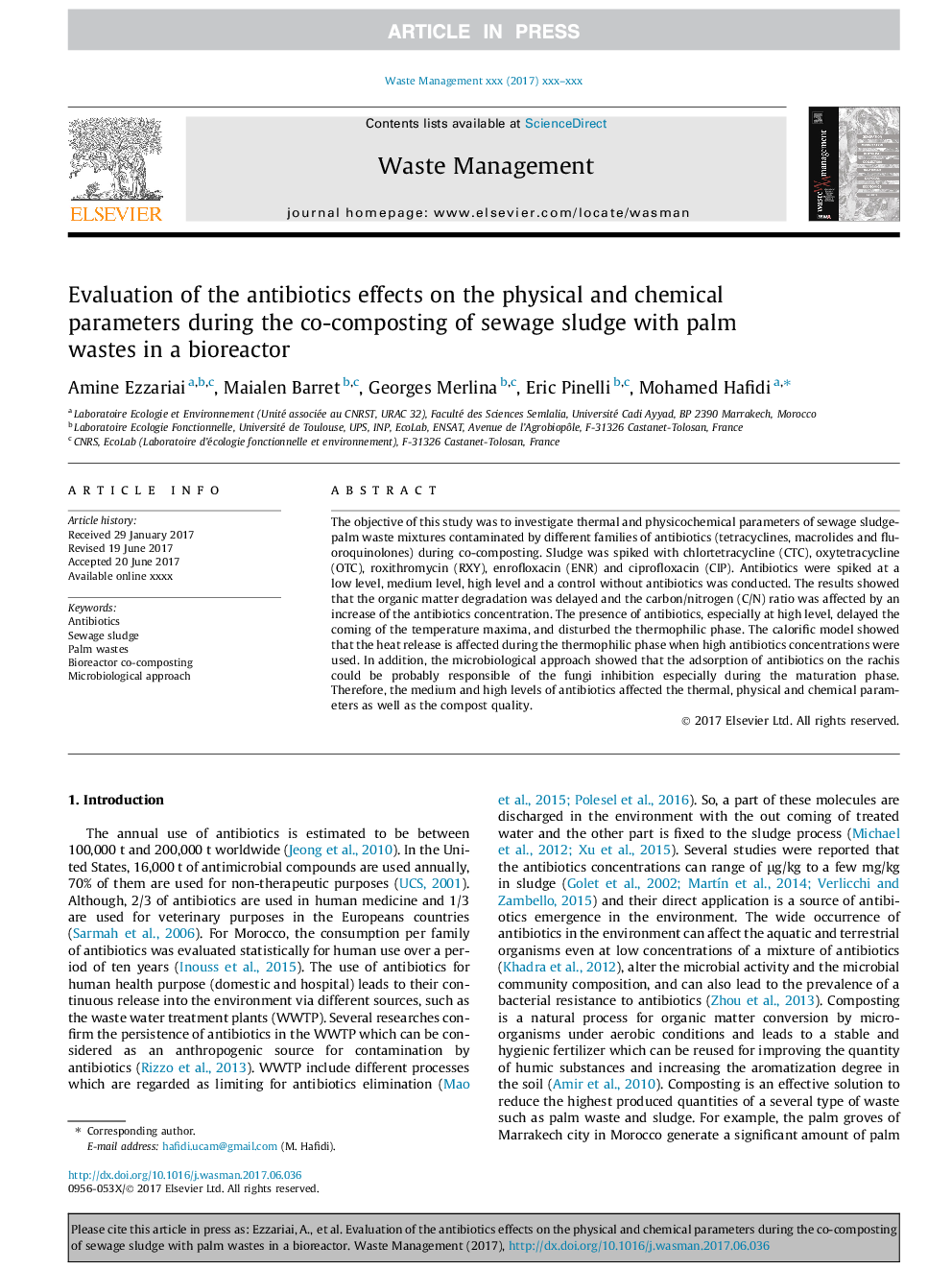| Article ID | Journal | Published Year | Pages | File Type |
|---|---|---|---|---|
| 5756586 | Waste Management | 2017 | 10 Pages |
Abstract
The objective of this study was to investigate thermal and physicochemical parameters of sewage sludge-palm waste mixtures contaminated by different families of antibiotics (tetracyclines, macrolides and fluoroquinolones) during co-composting. Sludge was spiked with chlortetracycline (CTC), oxytetracycline (OTC), roxithromycin (RXY), enrofloxacin (ENR) and ciprofloxacin (CIP). Antibiotics were spiked at a low level, medium level, high level and a control without antibiotics was conducted. The results showed that the organic matter degradation was delayed and the carbon/nitrogen (C/N) ratio was affected by an increase of the antibiotics concentration. The presence of antibiotics, especially at high level, delayed the coming of the temperature maxima, and disturbed the thermophilic phase. The calorific model showed that the heat release is affected during the thermophilic phase when high antibiotics concentrations were used. In addition, the microbiological approach showed that the adsorption of antibiotics on the rachis could be probably responsible of the fungi inhibition especially during the maturation phase. Therefore, the medium and high levels of antibiotics affected the thermal, physical and chemical parameters as well as the compost quality.
Keywords
Related Topics
Physical Sciences and Engineering
Earth and Planetary Sciences
Geotechnical Engineering and Engineering Geology
Authors
Amine Ezzariai, Maialen Barret, Georges Merlina, Eric Pinelli, Mohamed Hafidi,
